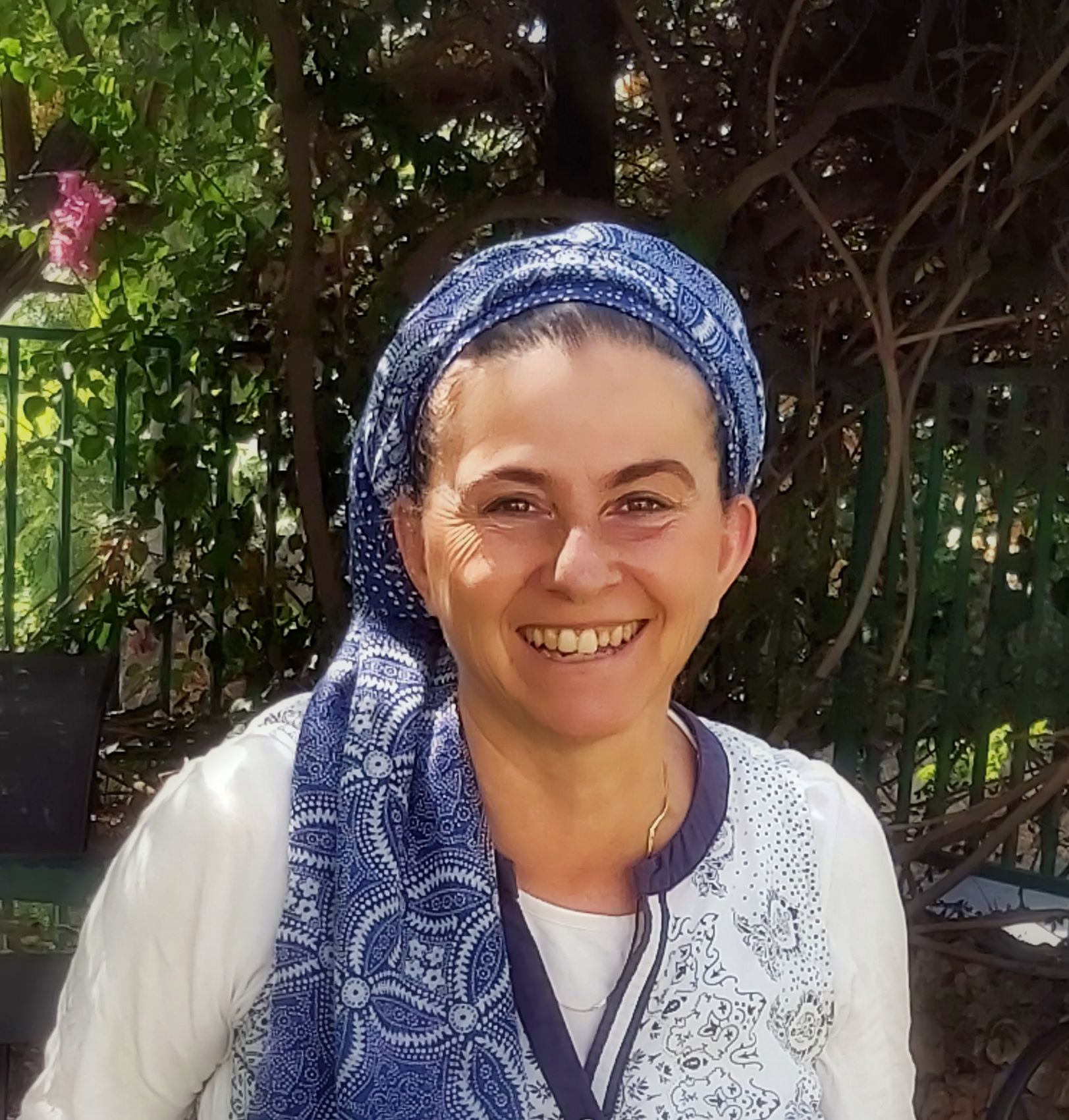Aleeza Cohen
Credentials
Finances
- Nahal Tzehelim 12, 54
- Bet shemesh, 9954354
Aleeza Cohen
 Verified
Verified
Credentials
Couples and Family Therapist, Art Therapist
MFT
Finances
350-500 NIS
None
Sliding Scale | Free Consultation
ABOUT THE THERAPIST
I am a certified marital, family, and art therapist, helping individuals, couples, and families navigate challenges, strengthen relationships, and foster personal growth through compassionate and creative therapy tailored to your unique needs
My approach is rooted in creating a safe and compassionate space where clients feel heard and understood. I blend evidence-based therapeutic techniques with creative methods like to support self-expression and healing. By tailoring each session to your unique needs, I empower you to explore emotions, overcome challenges, and build practical skills for lasting change in your relationships and personal growth
I specialize in couples therapy and trauma therapy for children, teens, and adults. I also provide expert support for individuals navigating loss and mourning. Additionally, I help couples and families strengthen relationships, enhance communication, and create greater harmony in their lives.
My role as a therapist is to provide a safe, supportive, and nonjudgmental space where you can explore your thoughts, emotions, and experiences. I guide you in uncovering insights, developing effective coping strategies, and fostering growth and healing.
My practice is a welcoming space where individuals, couples, and families can work toward healing and personal growth. I offer a range of therapeutic approaches, including creative modalities , tailored to meet your unique needs. Sessions are available in a comfortable setting, and I strive to create an environment that feels safe and empowering. Whether you're navigating relationship challenges, trauma, loss, or life transitions, I am here to support you with compassion and expertise.
QUALIFICATIONS
MFT
Notre Dame de Namur University
1995
Degree
MFTEducation
Notre Dame de Namur UniversityYear of Graduation
1995Years in Practice
29
ADDITIONAL CREDENTIALS
EMDR Level 1 - Israeli EMDR Institute - 2014
Art Therapy - 1995
EMDR Level 2 - 2017
EMDR for Children Level 1 - 2019
EMDR for Children Level 2 - 2021
Supervisor for couple therapists - The Israel Association for Couple and Family Therapy
Emotionally Focused Therapy (EFT) - 2019
EFT Core Skills - ICEEFT - 2021
Treatment of Sexual Abuse - Emunah - 2011
Brain Spotting - Brain spotting Israel - Dec. 2023
DISTANCE COUNSELING
Online Therapy
PRIMARY SPECIALTIES
Abuse
Behavioral Concerns In Children
Couples / Relationship / Marriage Counseling
Family Issues
Grief
ADDITIONAL SPECIALTIES
Sexual Issues
CLIENT FOCUS
Population
Children
Adolescents
Adults
Couples
Families
Women
Languages Spoken
Hebrew
English
TREATMENT APPROACH
Art TherapyArt therapy has clients express themselves through creative mediums such as drawing, painting, collage, coloring, or sculpting. Clients can interpret their subconscious world that is expressed in their art which could lead to a better understanding of their feelings and behavior. Artistic talent is not a prerequisite for art therapy as it’s not as much about the end result as much as it is about the process. The therapist looks for meaning in the creative choices of the work and the clients’ inner world. This therapeutic method enables clients to express their inner thoughts and feelings through creative expression rather than just talking about them.
Attachment-Based Family Therapy (ABFT)Attachment-based family therapy (ABFT) is a form of psychotherapy that focuses on the family's relationships and communication patterns. It is based on the theory that strong and secure attachments between family members are essential for emotional health and well-being. The goal of ABFT is to identify any problems in family relationships, enable family members to become more attuned to each other’s needs, and build a secure bond between them. It also helps family members to practice healthy communication skills, learn effective problem-solving strategies, and build trust within the family.
Brainspotting (BSP)Brainspotting is a form of psychotherapy that uses eye positioning and body-based approaches to help people identify, process, and release emotional and physical distress. It is based on the idea that the body and mind are interconnected and that certain eye positions can help access and release stuck, unresolved emotions. Practitioners help clients reprocess negative events and retrain emotional reactions by guiding clients’ eyes, with a pointer, across their field of vision to find “brainspots”. Brainspots are eye positions that activate a painful emotion or trauma. Through the use of bilateral sound and/or vibration, the therapist helps the client to access and process difficult or traumatic memories and emotions, leading to lasting and positive changes in behavior and well-being.
Emotion-Focused TherapyEmotion-focused therapy (EFT) is a type of psychotherapy that is based on the idea that emotions play a key role in a person’s mental health. EFT focuses on helping people to identify, accept, and manage their emotions in a healthy and productive way. The goal of EFT is to help people identify and express their emotions, understand how those emotions impact their behavior, and learn how to manage their emotions in a way that is adaptive and healthy. EFT is a research-based approach to psychotherapy that has been found to be effective in helping people manage a variety of mental health conditions. It has been used successfully in the treatment of individuals, couples, and families, as well as with groups. EFT is particularly beneficial for people who struggle with emotional regulation, mood disorders, anxiety, trauma, and relationship issues.
Expressive Arts TherapyExpressive Arts Therapy is particularly beneficial for clients who struggle with describing what they are feeling verbally. Through imagination and creation of different art forms, clients are able to interpret and communicate their inner world and catalyze healing. Expressive arts therapy can involve the use of multiple modalities, such as visual arts, music, movement, drama, storytelling, poetry, and play. It is used to help individuals of all ages, including children and adults, to explore their feelings, reconcile emotional conflicts, foster self-awareness, manage behavior and addictions, develop social skills, improve reality orientation, and solve problems.
Eye Movement Desensitization and Reprocessing Therapy (EMDR)Eye Movement Desensitization and Reprocessing (EMDR) is a psychotherapy treatment that was originally designed to alleviate the distress associated with traumatic memories. It uses a structured approach to address the past events that may be causing current distress, and uses bilateral stimulation, such as eye movements, to activate different neural networks in the brain in order to reduce symptoms of trauma. EMDR has been found to be effective for a wide range of mental health issues, including anxiety, depression, and PTSD.
Narrative TherapyNarrative therapy is a form of psychotherapy that focuses on the stories, or narratives, of a person's life in order to help them gain insights into their situation and develop skills to make positive changes. It is based on the idea that people construct their own stories and meanings to make sense of their lives and experiences. It emphasizes the strengths, values, and skills of the person, while also exploring the influences of culture and context on their life. Narrative therapy seeks to empower individuals by helping them to identify and use their inner resources to overcome challenges and create positive change.
Psychodynamic TherapyPsychodynamic therapy is a form of therapy that focuses on the unconscious mind and how it affects behavior. It works to help people understand and work through past experiences and feelings that may be causing difficulties in the present. This type of therapy encourages individuals to explore their emotions, relationships, and behaviors in order to gain insight into their current difficulties. It can help individuals better understand themselves and their motivations, and gain insight into how past events have impacted their current lives. People tend to develop defense mechanisms when faced with challenges in life. Defense mechanisms may keep painful feelings, memories, and experiences in the unconscious. A few common defense mechanisms include: denial, repression, and rationalization. Psychodynamic therapists encourage people to speak freely about their emotions, desires, and fears. Being open may help uncover vulnerable feelings that have been pushed out of conscious awareness. According to psychodynamic theory, behavior is influenced by unconscious thought. Once painful feelings are brought forth and processed, the defense mechanisms are no longer needed and a person in treatment can start changing unhelpful patterns when coping with life’s challenges.
Somatic Therapy
SERVICES OFFERED
Individual Therapy
Clinical Supervision
Couples Therapy
Family Therapy
Hadrachat Horim

 Verified
Verified


